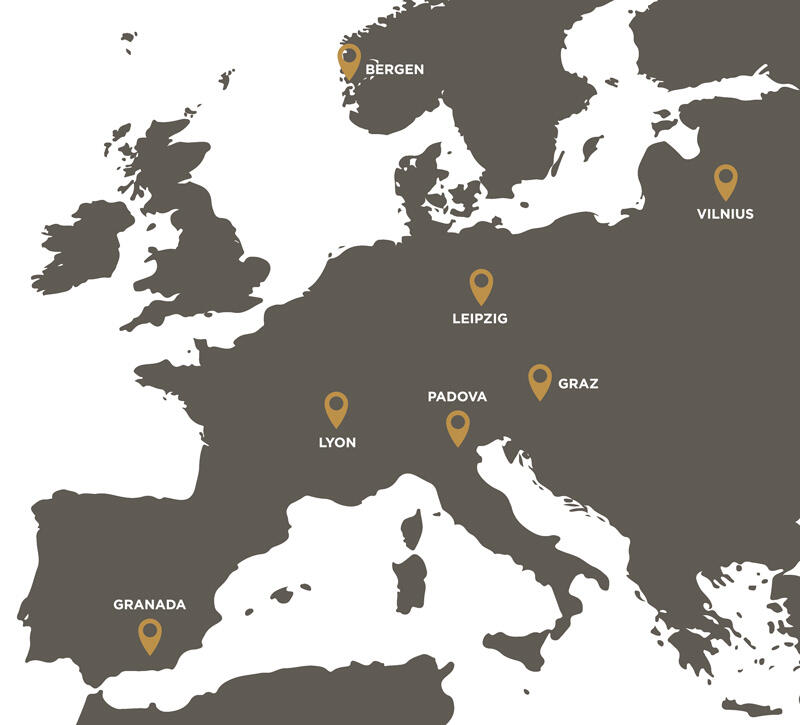Meet the climate challenge in new UiB course
Take on the transformative challenges of our time together with motivated students from around Europe in the new course "Facing Grand Challenges: A European research program"

Main content
"Facing Grand Challenges: A European Research program" is a brand new course open to all UiB students across faculties to work in group projects on investigating climate change risks in Bergen. We welcome all students with interest in the grand challenges of our time and who would like some first-hand experience in conducting a research project.
We require engaged and motivated students for our course who would like to learn more about climate change, how to do a research project and collaborate with students localy and across Europe. The course is part of UiB's commitments in the Arqus Alliance and is led by the Centre for the Study of the Sciences and Humanities together with Centre for Climate and Energy Transformation. Registration is now open until January 15th 2021.
In the coming decades, Europe will need to rapidly respond to a number of converging challenges such as migration, climate change, inequality and the erosion of democratic institutions.
Common to these challenges are that they are characterised by complexity, uncertainty, ethical dilemmas and urgency, and that they force us to rethink how we should act as European citizens. The course combines theory and practice and provides practical tools to engage with complex and urgent social, economic, environmental and political challenges.
In the 2021 course, course participants will work in interdisciplinary teams, in close collaboration with local institutions, on a research project that explores pathways for responding to climate change risks in Bergen. It can be anything from landslides to sea-level rise. At the same time, you will collaborate with students and researchers from the seven universities in the Arqus Alliance to compare your results and together build a portfolio of approaches to climate risk management for Europe, to be sent to the European Commission. These approaches will reveal the implications of climate risks for the principles and responsibilities of European citizenship.
Winter School
The course kicks off with an intensive five day winter school together with students from the seven Arqus universities. In the Arqus Winter School, you will get an overview of the climate risks facing European cities and how these risks might be governed. You will also develop practical skills, through intensive workshops, for mapping Bergen’s own climate risks; through interpretation of climate data, interdisciplinary collaboration and futures thinking.
Research project
After the winter school, course participants will – in groups - run their own interdisciplinary challenge-based research projects in collaboration with local institutions. To support this work, the course combines international online learning modules, where one will learn from leading experts and collaborate with students across Europe, with local sessions supervised by researchers in Bergen. The end result will be a research report and presentation.
students will develop key skills needed to participate in an interdisciplinary research project
Through this work you will develop key skills needed to participate in an interdisciplinary research project, including collaboration with stakeholders and researchers from other disciplines, the framing of research questions, how to select and use relevant methods, the writing of a research report and how to peer-review the work of other researchers.
A student-led approach
The course builds on your active participation. By participating in discussions, workshops and joint reflection, you will contribute to the learning of other students. As leaders of your own research projects, you will make key decisions regarding the directions of your research topics. You will also be able to participate in the planning of the local course sessions, which means that you will play an active role in shaping both the content and the form of the course.
